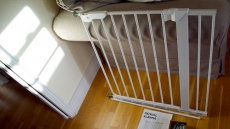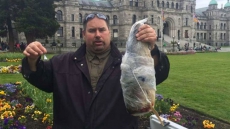VANCOUVER — The British Columbia Civil Liberties Association is applauding Vancouver city council for regulating medical marijuana dispensaries but is warning the new bylaws are too restrictive.
Policy director Micheal Vonn says patients will see their right to edible pot — granted in a recent Supreme Court of Canada decision — disappear with the city's ban on brownies and cookies from storefronts.
She also says the city's requirement that dispensaries be at least 300 metres from schools, community centres and each other promotes an unfair stigma.
Council voted 8-3 on Wednesday to create a two-tiered system that imposes a $1,000 licence fee on non-profit compassion clubs and a $30,000 fee on for-profit pot shops.
Vonn is praising the lower fee for compassion clubs but says the higher fee for other dispensaries still appears to be more than what the city would need to recover costs.
She says she appreciates that the city stepped into a "regulatory vacuum," but the new rules will limit access for some patients.
"There's not even a question that it's for the federal government to regulate. It is. The problem is that they're not. And meanwhile it's patients' rights that are at issue," she says.
The city has blamed restrictive federal laws for Vancouver's rise in illegal marijuana dispensaries, up to 94 from fewer than 20 three years ago.
Federal Health Minister Rona Ambrose says she is "deeply disappointed" by the city's decision and warned that storefront pot sales remain illegal in Canada.
Canada's top court ruled earlier this month that medical marijuana patients have the right to consume pot in edible products like cookies, brownies and teas.
The city says it's banning the treats because they appeal to children and it's difficult to control their contents. Patients will still be able to buy oils, tinctures and capsules to make their own food.
But Vonn says this amounts to "second-class citizenship" for medical marijuana patients.
"Nobody asks you to go home and make your own Advil," she says.
"The IKEA model of 'You can assemble these parts at home' is not even feasible for all kinds of patients: those in long-term care, those in hospitals, those in single-room occupancy hotels without access to kitchens."



